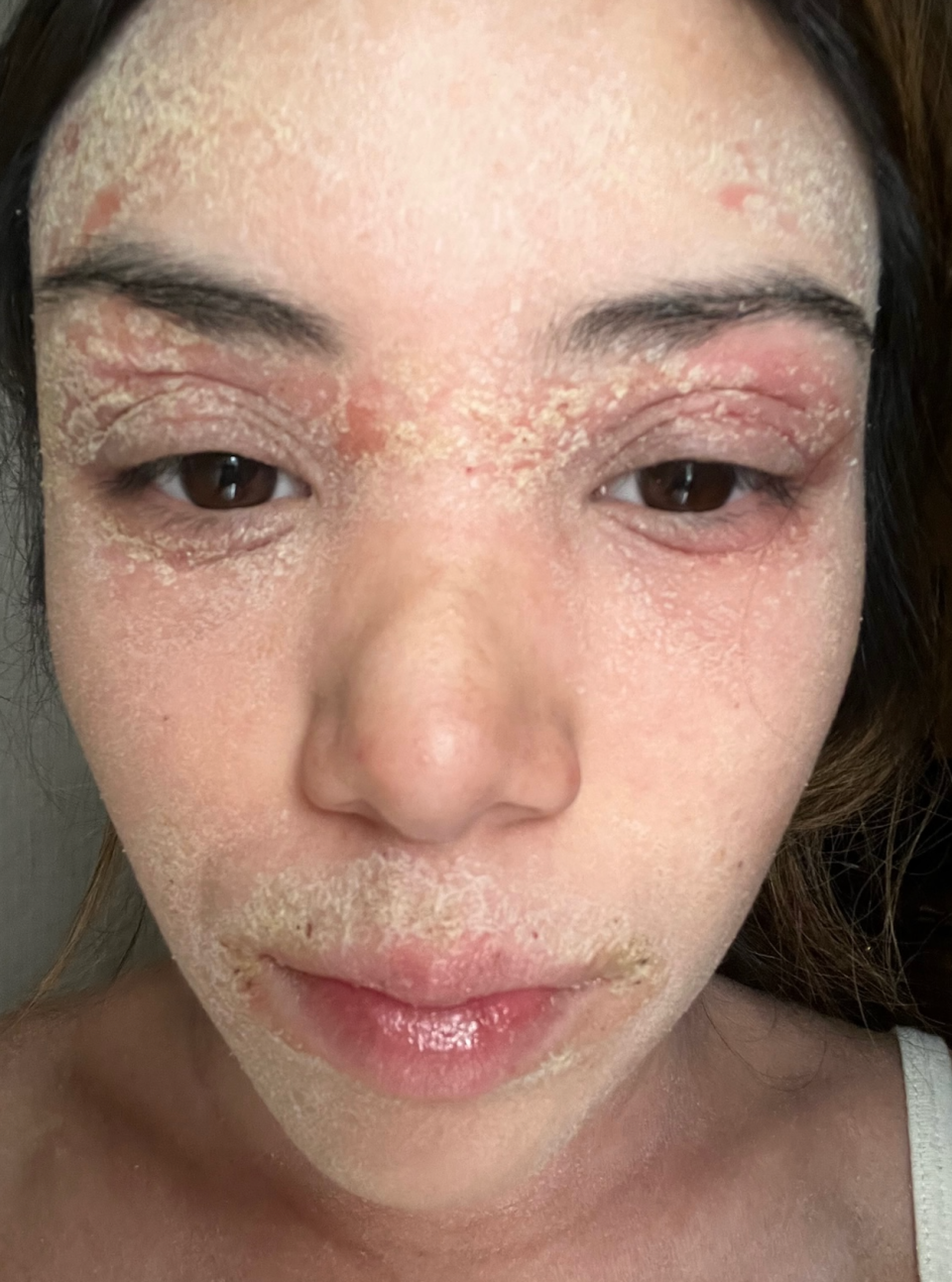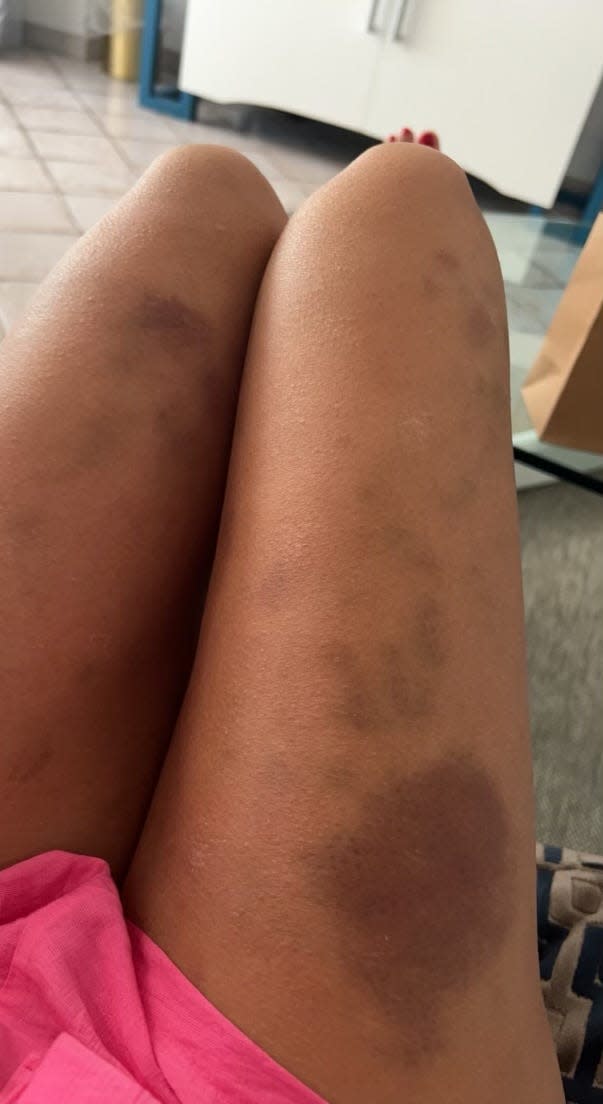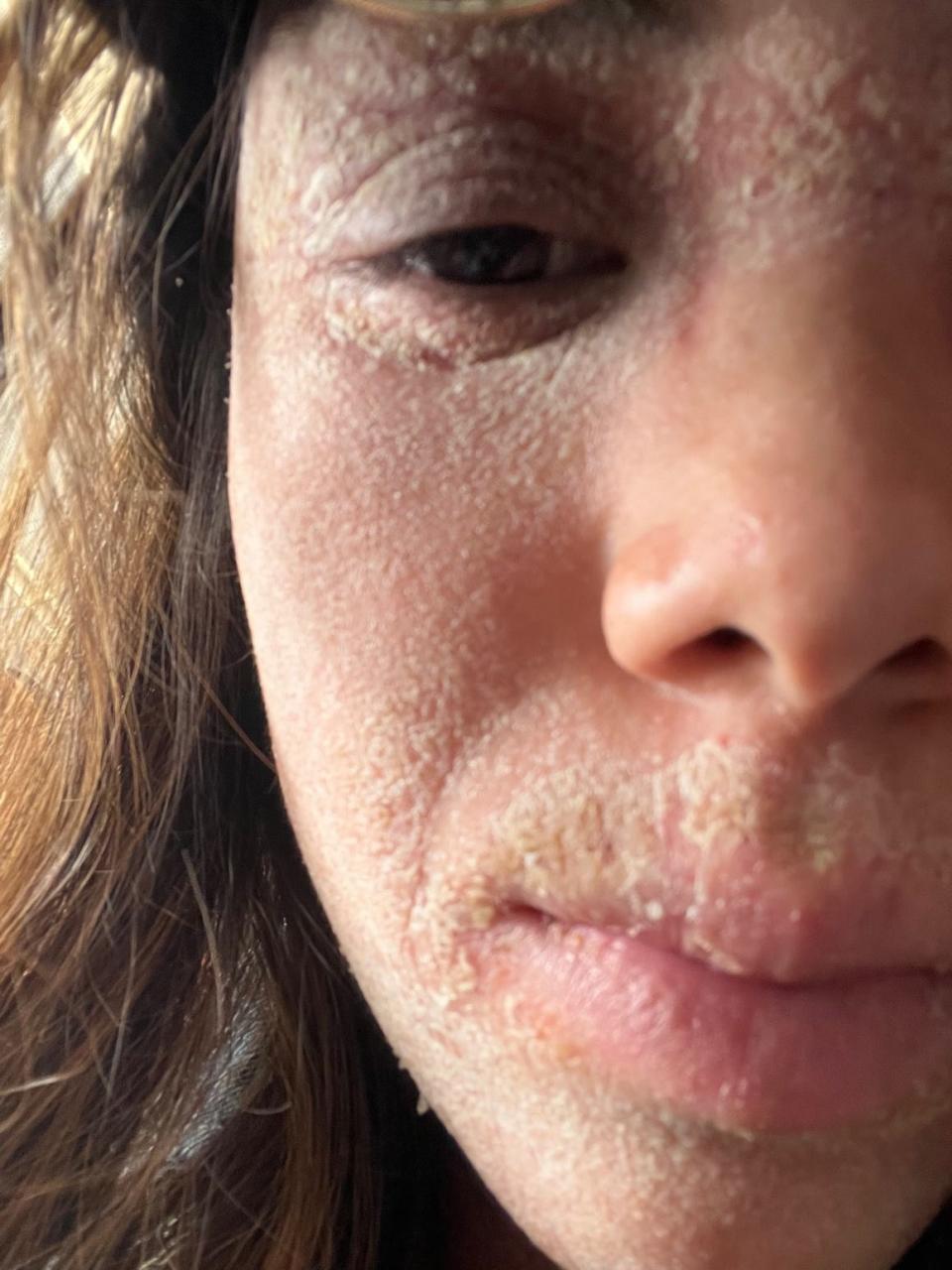Topical steroid withdrawal is controversial. Patients say it's real and feels 'like I'm on fire.'
Michelle Sansiveri's eczema began as a teenager with a tiny patch on her neck.
A dermatologist prescribed the now 28-year-old a low-to-medium dose topical steroid cream with just one instruction: use as needed. She would place the cream on her rash, and the eczema would go away. Then it would come back.
This happened for over 10 years – until that spot spread like an itchy wildfire across her cheeks, chest and arms. Last July, her arms grew red and raw.
Sansiveri joins a chorus of thousands who say they have topical steroid withdrawal, a new and controversial condition experts say requires more research so we can fully understand it.
Dermatologists emphasize the importance of strictly adhering to proper steroid use and recognize the horror some patients report when they don't. "Patients who suffer from topical steroid withdrawal really suffer immensely," dermatologist Dr. Bruce Brod says. "It's very important to direct those patients to care."

Topical steroids are more than a cream – they're drugs
People must remember that steroids are a drug; just because something comes in a cream or lotion, doesn't mean it's less potent.
Doctors often prescribe topical steroids for a host of conditions: psoriasis, poison ivy, dermatitis, eczema. Patients don't typically run into problems as along as they're applying the creams correctly and for a limited time, i.e. two weeks.

In Sansiveri's case, eventually "it didn't even look like eczema anymore. It looked like so much worse than that." Over the years, doctors suggested the New Jersey-based account manager use stronger steroid creams, and even oral steroids, to manage it.
Brod believes topical steroid withdrawal is real, if difficult to define, but that it's largely preventable. One of the hallmark signs is intense redness, along with pain and burning. "Where patients run into trouble is using the steroids for a prolonged period of time, without any bridge to other therapies and especially in certain locations that are more prone, like the face, like the genital region as well," he says. Other side effects could include stretch marks, fungal infections and even bone demineralization (i.e. making your bones more vulnerable to fractures).
Some dermatologists are more conservative. They're more skeptical about topical steroid withdrawal as a true diagnosis and believe the symptoms described are a product of misuse, not the drugs themselves. Dr. Dina Strachan, of Aglow Dermatology, doesn't typically see patients with topical steroid withdrawal; she says that's because she manages her patients closely. "You don't just give (topical steroids) to them to ride off into the sunset," she adds.
'I knew something wasn't right'
When Sansiveri didn't bring the steroids on a family vacation to the Philippines last summer, rashes sprung up on her body from the waist up. In lieu of doctors suggesting more steroids yet again, she sought support online.
"I knew something wasn't right," she says.
It was only then that she discovered you shouldn't be using these creams for more than two weeks. A group on Facebook – ITSAN Topical Steroid Withdrawal Syndrome Support Group – enlightened Sansiveri to her condition. The community has about 20,000 people, and everyone looks exactly like her.
They recommended she stop taking steroids cold-turkey and to strap in for a hellish year.
"The first six months were the hardest," she says, reflecting about a year later. "I was glued to the couch or my bed. I didn't want to go outside. I couldn't show my face." Half her hair fell out, including her eyebrows. She was bruised head to toe. After six to eight months of not using steroids, her hair started growing back and her appearance improved.
Doctors insisted she still use steroids. But she was done.
Brod cautions social media is a breeding ground for misinformation, particularly when it comes to topical steroid withdrawal. It's absolutely critical, Brod says, that patients verify alternate treatments with a medical professional.

Interesting: Does 'skin cycling' actually work? I tried it for one month.
'Eczema people are itchy. TSW people are on fire.'
Treatment for topical steroid withdrawal can be challenging and prolonged and must be tailored to individual patients. It's challenging, but non-steroidal medications exist and can help limit inflammation. Brod recognizes the importance of acknowledging patients' concerns and setting appropriate expectations to get them to a safe place for treatment.
He says it's a balance of weaning people off steroids but not jolting their system so intensely that they rebound. "With the appropriate amount of empathy, time and a treatment regimen that matches the patient needs, ultimately, the prognosis is good," he adds.
Going forward, Sansiveri plans to treat her skin issues naturally. Strachan cautions that natural treatments could exacerbate eczema, and that people often have allergic reactions to common suggested treatments like essential oils. When treating eczema, patients should consider how many times they take a bath or shower and if they use hot water; what kind of soap they use; how much they moisturize, etc., which can all affect their skin.

Sansiveri has been through the ringer with dermatologists, but doesn't want to lambast every one. Still, she's sick of being laughed at in offices when she knows her pain is real.
"We always say eczema people are itchy," she says. "TSW people are on fire. Like, it's not even an itch. It's like nerve pain, and I feel like I'm literally on fire. When I'm sleeping at night, I feel like I'm sleeping on broken glass."
Her boyfriend, friends and family have all been supportive, but no one understands her like the community online. "If that Facebook group, and if TikTok didn't exist, I don't know where I'd be right now," she says.
In case you missed: TikTokers are zapping their skin with red light; dermatologists say they’re onto something
This article originally appeared on USA TODAY: Topical steroid withdrawal: When simple creams turn into suffering

